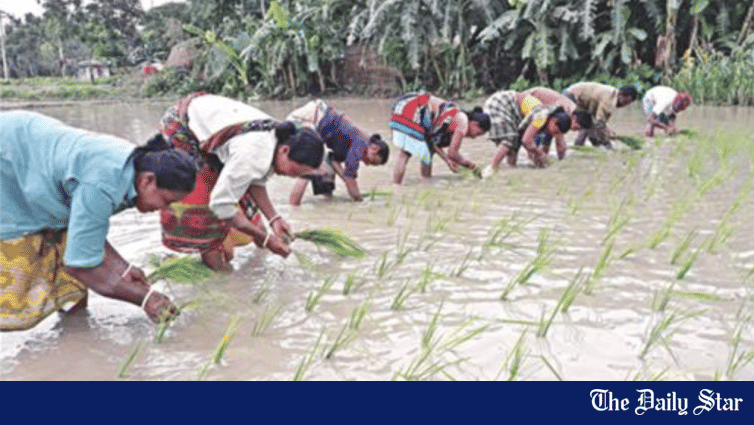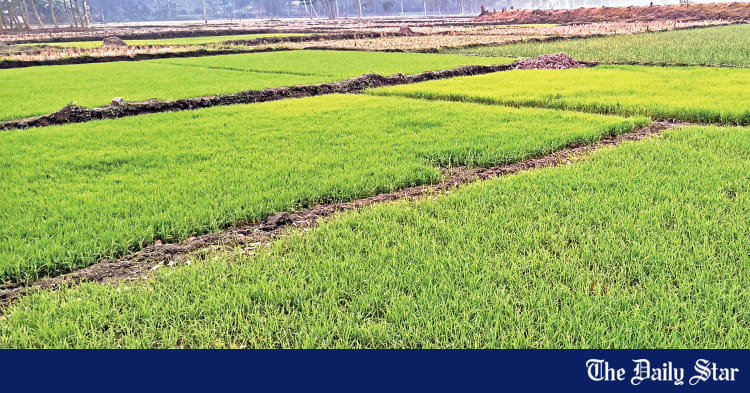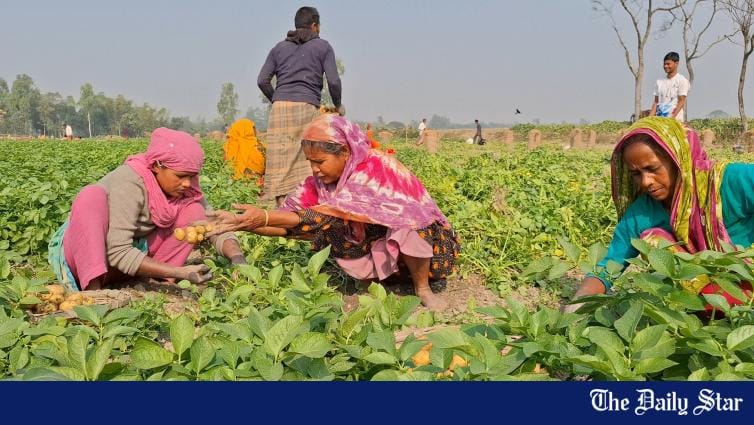- Copy to clipboard
- Thread starter
- #121
Saif
Senior Member
- Joined
- Jan 24, 2024
- Messages
- 15,397
- Reaction score
- 7,873
- Nation

- Residence

- Axis Group


Average Aman yield increases
The average yield of rice in the ongoing Aman season has increased this year, ushering hopes to compensate the damage Bangladesh incurred in 14 districts due to July-August flooding. As above 56 per cent of Aman harvest has been completed so far, according to official statistics, farmers are
Average Aman yield increases
Yasir Wardad
Published :
Dec 20, 2024 01:17
Updated :
Dec 20, 2024 01:17

The average yield of rice in the ongoing Aman season has increased this year, ushering hopes to compensate the damage Bangladesh incurred in 14 districts due to July-August flooding.
As above 56 per cent of Aman harvest has been completed so far, according to official statistics, farmers are getting 3.11 tonnes of rice on average per hectare of land.
The country produced an all-time high of 16.7-million tonnes of rice in the last Aman season when average yield was 2.90 tonnes per hectare.
This fiscal year, the expectation was higher at 17.6-million tonnes on 5.9-million hectares, according to the Department of Agricultural Extension (DAE).
But the devastating flood in south-east for heavy rain and sudden water release from neighbouring India in July-August caused severe damage to nearly 0.3-million hectares of standing crops, said a DAE official.
Despite the losses, according to him, driving rain and short-time floods in many places have helped raise productivity.
DAE director general Md Saiful Alam said the average yield per hectare has so far been 3.11 tonnes.
"An estimated 56-per cent Aman harvest has been made and we are expecting completion by the first week of January," he added.
With the end of the harvest, Mr Alam said, the average yield might be 2.95 to 3.0 tonnes.
After flood damage, an estimated 5.67-million hectares of Aman crop were in the fields.
The production might be static or rise a little bit, thanks to a surge in per-hectare yield, observed Mr Alam.
However, rice prices still remain higher amid the Aman season as coarse rice is selling at Tk 55-56, medium at Tk 65-68 and finer at Tk 72-88 per kg at groceries.
Following seasonal floods, the interim government has removed almost all duties on rice import for the private sector.
The public sector also attempts to import 0.5-million tonnes.
Besides, food directorate has started its annual Aman procurement with a target for 0.7-million tonnes of food grain.
Yasir Wardad
Published :
Dec 20, 2024 01:17
Updated :
Dec 20, 2024 01:17
The average yield of rice in the ongoing Aman season has increased this year, ushering hopes to compensate the damage Bangladesh incurred in 14 districts due to July-August flooding.
As above 56 per cent of Aman harvest has been completed so far, according to official statistics, farmers are getting 3.11 tonnes of rice on average per hectare of land.
The country produced an all-time high of 16.7-million tonnes of rice in the last Aman season when average yield was 2.90 tonnes per hectare.
This fiscal year, the expectation was higher at 17.6-million tonnes on 5.9-million hectares, according to the Department of Agricultural Extension (DAE).
But the devastating flood in south-east for heavy rain and sudden water release from neighbouring India in July-August caused severe damage to nearly 0.3-million hectares of standing crops, said a DAE official.
Despite the losses, according to him, driving rain and short-time floods in many places have helped raise productivity.
DAE director general Md Saiful Alam said the average yield per hectare has so far been 3.11 tonnes.
"An estimated 56-per cent Aman harvest has been made and we are expecting completion by the first week of January," he added.
With the end of the harvest, Mr Alam said, the average yield might be 2.95 to 3.0 tonnes.
After flood damage, an estimated 5.67-million hectares of Aman crop were in the fields.
The production might be static or rise a little bit, thanks to a surge in per-hectare yield, observed Mr Alam.
However, rice prices still remain higher amid the Aman season as coarse rice is selling at Tk 55-56, medium at Tk 65-68 and finer at Tk 72-88 per kg at groceries.
Following seasonal floods, the interim government has removed almost all duties on rice import for the private sector.
The public sector also attempts to import 0.5-million tonnes.
Besides, food directorate has started its annual Aman procurement with a target for 0.7-million tonnes of food grain.




















